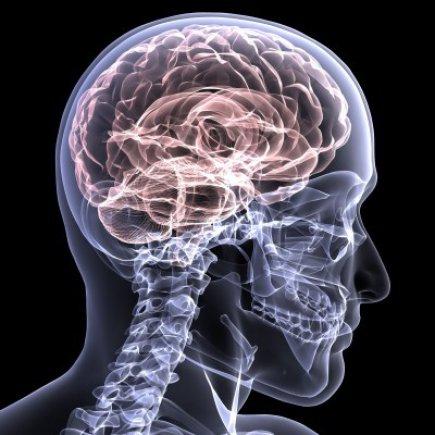A first-of-its-kind study showing the devastating impact of wartime brain injuries on service members have been making news headlines of late. A University of Washington neurologist (Mac Donald) followed 50 soldiers after they suffered concussive injuries and continued to track their conditions over several years.
Her findings may send shock waves through the military community, as she calls into question the belief that these individuals definitively stabilize within a year after the injury occurs. In fact, according to the study, service members’ health symptoms may actually be worsened five years after the incident that caused their injury. The injury-causing incidents include events such as back blasts that feel as though one has just been hit by a car or been in a car accident.
The Statistics for Vets from Iraq & Afghanistan Are Startling
These findings will come as a challenge to the Veterans Administration, which has indicated that one in five (or more than 2 million) soldiers who served in Iraq and Afghanistan developed and suffered from at least one traumatic brain injury (TBI). Mac Donald’s research ultimately indicates that we simply don’t know when these service members will get better and as a result, we need to be more proactive in the healthcare we provide to them by focusing on continuity of care and developing a long-term treatment strategy.
Debilitating Injuries
Many of the service members suffering from these traumatic brain injuries cannot currently hold jobs because of their injuries. Oftentimes, these individuals take multiple medications for physical pain and psychological issues related to their injuries and they struggle each day with post-traumatic stress disorder. Debilitating migraines following blast concussions are another serious problem that doctors are still working to find an effective form of treatment for.
Widespread Acceptance & Support Still Needed
Many of these service members are lacking the support that others with more physically apparent injuries receive from the Veterans Administration. While blast concussions were frequent in prior wars, in those instances, many who experienced them didn’t end up surviving.
Still, many are trying to get the Veterans Administration and others to accept that traumatic brain injuries are effectively now the signature injury of the conflicts in both Iraq and Afghanistan. Since 2000, more than 360,000 service members have been diagnosed with a traumatic brain injury.
Traumatic Brain Injuries Are a Big Problem
According to the Centers for Disease Control and Prevention, traumatic brain injuries, in general, contribute to approximately 30 percent of all injury-related deaths—this is approximately 153 people in the United States.
And for those who survive, the effects “can last a lifetime.” Many of the individuals who suffer from a traumatic brain injury are young men who played football and related contact sports in high school or otherwise in their youth when the brain is still extremely vulnerable to sustaining permanent damage from concussions. Exhaustion, headaches, difficulty focusing, dizziness, lack of balance—all of these are reported as symptoms early on—but there is no question that studies have uncovered far more disturbing symptoms later on in life. These include debilitating mental and emotional illnesses and even violent tendencies in some instances. In recent years, there have been widespread reports that concussions have led to dementia, suicide, and other neurological conditions among former NFL players, as well as high school and collegiate players.
Responses from Doctors & Insurance Companies
Doctors and other healthcare professionals need to be able to recognize a TBI and determine the best plan of care in order to help their patients recover. Depending upon the circumstances of a patient who complains of various symptoms associated with a TBI, doctors and other healthcare professionals may or may not run the right tests to properly diagnose a TBI, particularly given that some doctors are reluctant to order MRIs due to the associated expense. In some instances, families don’t even notice there is a problem until some time has passed after the incident giving rise to the TBI and they see a “marked change in behavior.” When it comes to teenagers who regularly play football, a parent who sees depression and behavioral changes in their child may mistakenly brush it off as their child just being a typical teenager.
Additionally, sometimes there are also issues with health insurance coverage. Some TBI patients have found that treatment methods such as Hyperbaric Oxygen Therapy, for example, is extremely helpful in their recovery, but these types of procedures are not covered by insurance for treatment of a brain injury.
New Techniques; New Hope?
As a result of being sued, the NFL partnered with USA Football to develop the Heads Up program in an effort to reduce brain trauma. New research now shows that using some of the techniques developed in this program can reduce both the number and the severity of concussions amongst high school players. Specifically, researchers found a 33 percent reduction in concussions during games and practices amongst the groups that used the program.
Charlotte, NC TBI Attorneys
If you have suffered from a traumatic brain injury, chances are your injury will have effects throughout your lifetime. Not only will you have various medical costs, but getting back to work and getting your life back on track both mentally and emotionally may involve insurmountable challenges.
At Brown Moore & Associates, PLLC, we offer more than 50 years of combined experience pursuing maximum compensation for accident victims and families suffering due to traumatic brain injuries. Working with one of our attorneys will help you understand the extent of your injuries and any long-term needs you may have, as a result, determine who was negligent, and figure out how to move forward. Please contact our Charlotte office online or call to schedule a consultation with a highly skilled personal injury lawyer.

